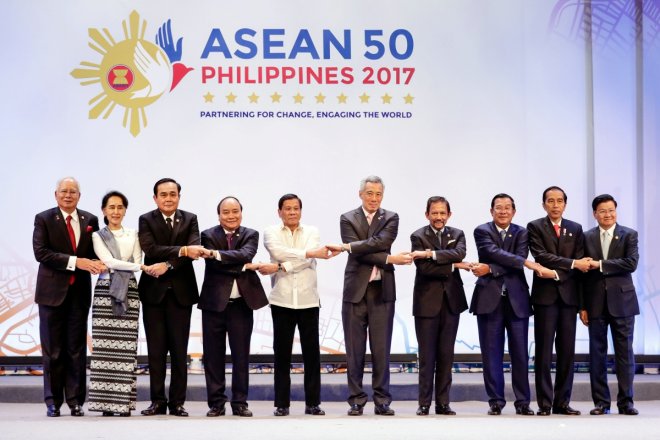
While many see the death of Southeast Asian ISIS-affiliated group leaders Isnilon Hapilon and Omar Maute as the key to end the five-month-long battle in Marawi, analysts continue to caution that the ASEAN community should brace itself for possible retaliatory attacks from sympathisers of the Daesh-link terror cell.
Ever since the Marawi incident in May when 1,000 heavily armed militants stormed the region, it was established that ISIS and the ISIS-affiliated groups in the region are not working in isolation but there is an increased evidence of outsiders' involvement. The Philippine military was surprised when it recovered dead bodies believed to be of nationals of the Middle East, Malaysia, and Indonesia among others.
Thus, with the presence of militants coming from different ASEAN countries, retaliatory terror attacks in some ASEAN countries cannot be ruled out.
Dr. Rommel Banlao of the Philippine Institute for Peace, Violence and Terrorism said that after the death of these regional leaders, terrorism will take a new form in the post-Marawi period because these groups linked to ISIS continue to evolve, thus, increasing the incidence of retaliatory attacks.
Meanwhile, military spokesperson for the Visayas region said that the probability of retaliatory attacks anywhere cannot be discounted.
In Manila, Maj. Gen. Restituto Padilla, Jr. of the Philippine army said the death of the two leaders of the ISIS-inspired group could also push for the sympathisers of the extremist group to resort to more violence. He suggested that the solution to extremism is no longer a military concern but this is something that all people should work together.
Especially so when the ISIS-affiliated group has shown new methods of urban warfare and more sophisticated arms compared to the Philippine Army. Recently, Malaysia, the Philippines and Indonesia have organized the Indomaphil, a sea patrol collaboration to monitor movements of terror groups in the maritime borders.
Despite the collaboration of ASEAN countries, Kumar Ramakrishna, a security expert at the Singapore-based S. Rajaratnam School of International Studies (SJSIS) has cautioned that the terror attacks could spill over the entire region.









